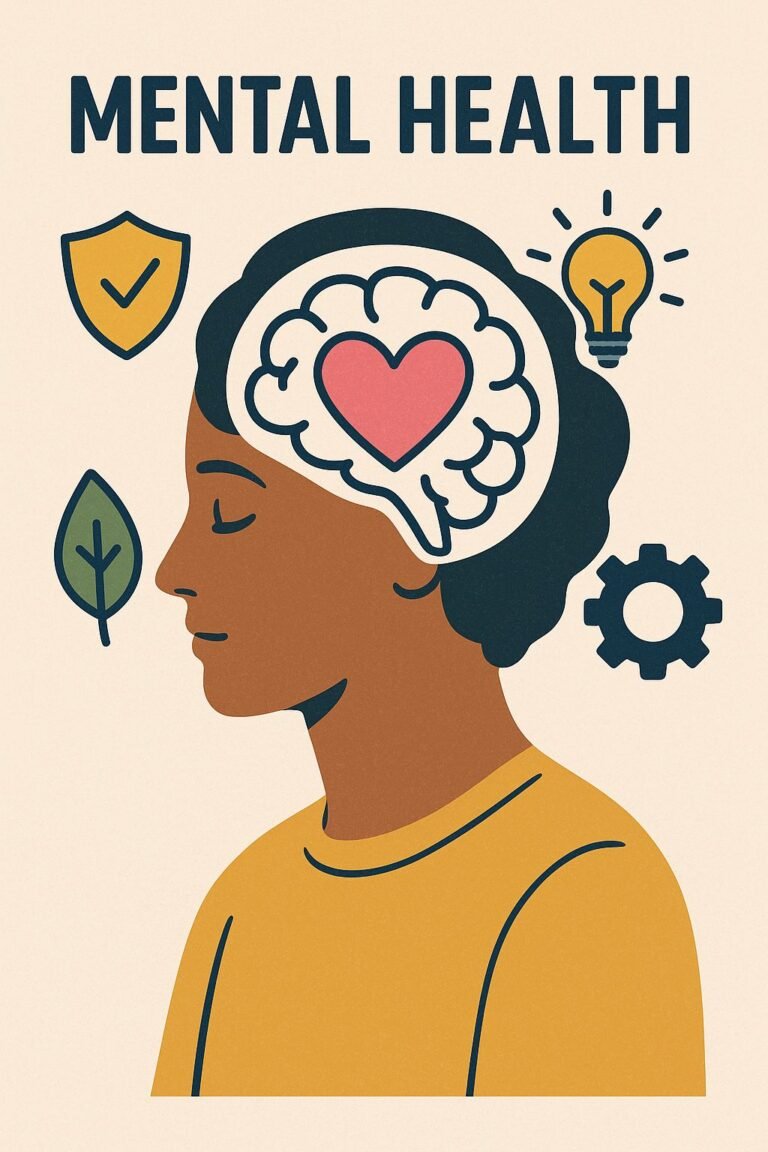Flu season is here again, and with it the yearly reminder of the importance of getting your flu shot. Health experts can’t stress enough that the flu shot is a simple and effective way to protect yourself and others from the flu.
Main Points
- Flu shots can reduce the intensity and length of flu symptoms.
- Vaccination dramatically lowers the risk of hospitalizations and severe cases related to the flu.
- Community immunity is enhanced by the flu vaccine, helping to protect vulnerable populations.
- Flu vaccines are updated every year to combat the most common virus strains.
- It is safe and advised for most people, including expectant mothers and children, to get the vaccine.
Reasons to Get Your Flu Shot This Year
The flu virus infects millions of people around the world every year, leading to a high number of doctor visits, hospitalizations, and even deaths. The flu vaccine is the most effective way to protect yourself against this potentially serious illness. When you get vaccinated, you not only protect yourself, but you also help protect those who are more at risk, such as the elderly, young children, and people with weakened immune systems.
Lessening the Severity and Length of Flu Symptoms
Receiving the flu vaccine can greatly decrease the intensity of symptoms if you do contract the flu. While no vaccine can guarantee complete protection, those who have been vaccinated generally have less severe symptoms that don’t last as long. This results in less time spent sick in bed and a faster recovery to resume your regular activities.
Think about it this way: getting a flu jab could be the difference between a slightly uncomfortable illness and a serious one that could result in complications like pneumonia. For instance, research has found that those who get vaccinated are less likely to suffer from serious complications related to the flu than those who don’t get the jab.
Reducing Hospital Stays and Serious Cases
Hospitalizations due to the flu are a major worry, particularly for those at high risk. The flu shot is vital in lowering the chances of these serious consequences. The Centers for Disease Control and Prevention (CDC) states that the flu shot lowers the risk of flu-related hospitalizations by roughly 40%. This is particularly crucial for those with chronic health issues, as they are more likely to have serious flu complications.
Community Protection and Safeguarding At-Risk Groups
Not only does getting vaccinated protect you, but it also helps to create community protection, which is also referred to as herd immunity. This happens when a large number of the population gets vaccinated, which helps to slow down the spread of the virus and also protects those who can’t get vaccinated, like babies under six months and people with certain medical conditions.
When you get vaccinated, you’re not just protecting yourself. You’re also helping to keep the whole community safe, especially those who are most at risk of severe illness from the flu.
Understanding the Flu Vaccine
The flu vaccine is created to shield against the influenza viruses that studies suggest will be the most prevalent in the coming season. The vaccine functions by prompting the immune system to create antibodies, which are proteins that combat infections. These antibodies form approximately two weeks after the vaccine is administered, offering protection against the flu.
Understanding the Flu Vaccine
Flu vaccines are usually made with inactivated (dead) viruses or without any virus at all, as is the case with recombinant vaccines. This means that the vaccine can’t give you the flu. Instead, the vaccine trains your immune system to recognize and combat the real flu virus if you encounter it later. According to experts urging flu vaccination, getting your flu jab can significantly reduce the risk of illness and related complications.
Debunking Common Misconceptions About the Flu Vaccine
Despite the abundance of information available, misconceptions about the flu vaccine continue to circulate. It’s important to debunk these myths so that more people feel confident about getting vaccinated. A common misconception is that the flu vaccine can cause the flu. This is completely false. The flu vaccine contains either inactivated virus or no virus at all, so it cannot cause the flu. For more insights, experts urge flu jab to prevent misery and illness.
A common misconception is that those in good health don’t need a flu shot. While it’s true that those in good health are less likely to have severe flu complications, they can still catch and transmit the virus to others. Getting vaccinated helps protect those around you, particularly those who are most vulnerable. For more on protecting your health, explore these eye health tips.
There’s a common misconception that the flu jab doesn’t work. While it’s true that the effectiveness of the vaccine can vary, it still greatly reduces the chances of catching the flu, being hospitalized, or even dying from it. Even if the vaccine doesn’t stop you from getting the flu, it can still make the symptoms less severe.
- The flu shot cannot cause the flu because it contains inactivated virus.
- Healthy individuals still benefit from vaccination by protecting others.
- The flu vaccine’s effectiveness varies but generally reduces flu severity.
- Annual vaccination is necessary as flu strains change each year.
Flu Vaccine Side Effects
Like any medical intervention, the flu vaccine can cause side effects, but they are generally mild. The most common side effects include soreness at the injection site, low-grade fever, and muscle aches. These symptoms usually resolve within a few days and are far less severe than the flu itself.
Why the Flu Vaccine Can’t Give You the Flu
- The vaccine contains dead virus or no virus at all.
- Your body creates antibodies to fight the actual virus.
- Some individuals may experience mild side effects, but these are not symptoms of the flu.
The flu shot is intended to train your immune system to identify and fight the flu virus. This process involves your body creating antibodies without causing sickness. It’s like a practice session for your immune system, getting it ready to fight the actual virus if you come into contact with it.
Crucially, the pros of getting the flu jab greatly overshadow the tiny chance of side effects. The jab is safe, it works, and it’s a key part of public health work to lessen the blow of the flu.
How Well Does the Flu Shot Work?
The flu shot’s effectiveness can change from year to year because it needs to match the flu strains going around. But even when it’s not a perfect match, it can still help. It can make symptoms less severe, lower the risk of serious problems, and make it less likely that you’ll spread the flu to others.
Take, for instance, the 2019-2020 flu season. During that time, the CDC has estimated that the vaccine was able to prevent around 7.5 million flu illnesses, 3.7 million medical visits, 105,000 hospitalizations, and 6,300 deaths. These figures demonstrate the substantial effect the vaccine has on public health.
Who is Eligible for Vaccination?
With very few exceptions, the flu vaccine is recommended for all individuals aged six months and older. This is especially crucial for certain high-risk groups who are more likely to develop serious complications from the flu.
Guidelines for Kids and Grown-ups
Kids, especially those under five, are more likely to suffer from flu complications. It’s essential for kids six months and older to get the flu shot every year. Grown-ups, especially those over 50, should also make it a priority to get vaccinated to safeguard themselves and others. Experts emphasize the importance of the flu jab to prevent misery and illness.
Flu vaccines are widely available at a variety of locations such as local pharmacies, doctor’s offices, and community health centers. Some employers also provide flu vaccinations to their employees as part of their wellness initiatives.
For those who don’t have insurance, a lot of community health centers offer flu vaccines for free or on a sliding fee scale. It’s crucial to check with local health departments for resources that are available.
Those who have compromised immune systems or ongoing health issues should talk to their doctor about when it’s best to get the shot. The vaccine can offer vital defense against serious sickness.
Moreover, those who live with or care for high-risk individuals should also get vaccinated to lower the chances of spreading the flu to those who are more susceptible.
Immunization While Expecting
We highly recommend that expectant mothers get the flu shot. It safeguards both the mom-to-be and her baby in the womb. The antibodies that the mother produces can shield the infant during the initial months after birth, a time when they are not old enough to receive the vaccine.
It’s safe to receive the flu vaccine at any point during pregnancy and studies have shown that it can cut the risk of flu-related acute respiratory infection in pregnant women by around 50%.
Where Can You Get the Flu Vaccine?
There are many places where you can get a flu vaccine, making it easy to get vaccinated. You can get a flu shot at pharmacies, clinics, and community health centers, and you often don’t need an appointment. Many employers also offer flu vaccine clinics at work.
Experts recommend getting your flu shot early in the season, preferably by the end of October. However, even if you get vaccinated later, it can still be helpful because flu viruses are still around well into the spring.
Doctors and Health Professionals
Doctors and health professionals are usually the first people we think of when we need a flu shot. You can get your shot from your family doctor or your child’s pediatrician during a regular appointment. This is also a good time to talk about any worries or questions you might have about the good things and bad things that can happen because of the shot.
Many health clinics host walk-in flu shot days. These events make it easier for people to get vaccinated and help slow the spread of the flu in local communities.
Local Pharmacies and Community Centers
Local pharmacies offer a convenient option for those looking to get their flu vaccine. Many major pharmacy chains have trained pharmacists on hand who can administer the vaccine, and often times they offer walk-in services. This makes it easy for busy individuals to get vaccinated without the need to schedule an appointment. For more information on why experts urge getting a flu jab, read this article.
Flu vaccines are also available at community centers and public health clinics, often for free or at a reduced price. These centers are vital for reaching underserved populations who may not have easy access to healthcare services. For more information, you can read about the importance of flu vaccinations in reducing the misery of flu seasons here.
Free Vaccine Programs are Accessible
For those who are underinsured or without health insurance, free vaccine programs are an option. These programs are often run by local health departments, ensuring that everyone can get the flu vaccine, no matter their financial situation.
It’s especially crucial for high-risk groups to participate in these programs, such as the elderly, children, and people with chronic health problems. By making sure these groups get vaccinated, we can help shield the broader community from flu epidemics.
Your Questions Answered
With flu season just around the corner, many of you have questions about the flu jab. In this section, we’ll tackle some of the most frequently asked questions to help you decide whether to get the jab.
Knowing the advantages and drawbacks of the flu vaccine can ease worries and motivate more individuals to get their yearly flu jab.
“The best way to keep yourself and your family safe from the flu and its potentially serious complications is to get the flu vaccine.” – Centers for Disease Control and Prevention
We are going to delve into some of the most common queries about the flu vaccine.
When Should I Get My Flu Shot?
You should aim to get your flu shot before flu season starts, ideally by the end of October. This gives your body time to build up the antibodies it needs to fight off the flu virus before it starts to spread. But if you don’t manage to get your shot by then, don’t worry – you can still get vaccinated later in the season. Flu activity often continues into spring, so it’s never too late to protect yourself.
Is the Flu Shot Appropriate for Kids?
Indeed, children who are at least six months old should receive the flu shot. It’s critical for young children to get vaccinated because they’re more likely to have severe complications from the flu. The vaccine is safe for children and can greatly decrease their chances of contracting the flu. For more insights, experts urge flu jab to prevent misery and illness.
Why Should I Get a Flu Shot Every Year?
Because the flu virus is ever-evolving and changes each year, it’s crucial to get a flu shot every year. The vaccine for each year is designed to protect against the strains that are predicted to be most prevalent during the upcoming flu season. Plus, the body’s immune response from vaccination diminishes over time, so getting vaccinated every year is the best way to ensure you’re protected. Experts urge getting a flu jab to prevent misery and illness.
Can Pregnant Women Get the Flu Vaccine?
Yes, the flu vaccine is safe for pregnant women and can be given during any trimester. It not only protects the mother from the flu but also provides immunity to the baby for several months after birth. This protection is crucial because infants are at high risk for severe flu illness but are too young to be vaccinated themselves.
Can I Get Vaccinated If I Can’t Have the Flu Shot?
Those who are unable to get the standard flu shot due to allergies or other health issues can consider other options like the nasal spray flu vaccine. But the nasal spray isn’t right for everyone, including pregnant women and people with certain health conditions. Talk to your doctor about what’s best for you.
So, getting the flu jab is an easy and highly effective method to protect not just yourself, but also your community from the flu. By staying educated and taking steps to prevent the flu, you can lower your chances of getting sick from the flu and contribute to a healthier community. Keep in mind, the flu jab isn’t just about protecting yourself; it’s about protecting the health of everyone around you.










